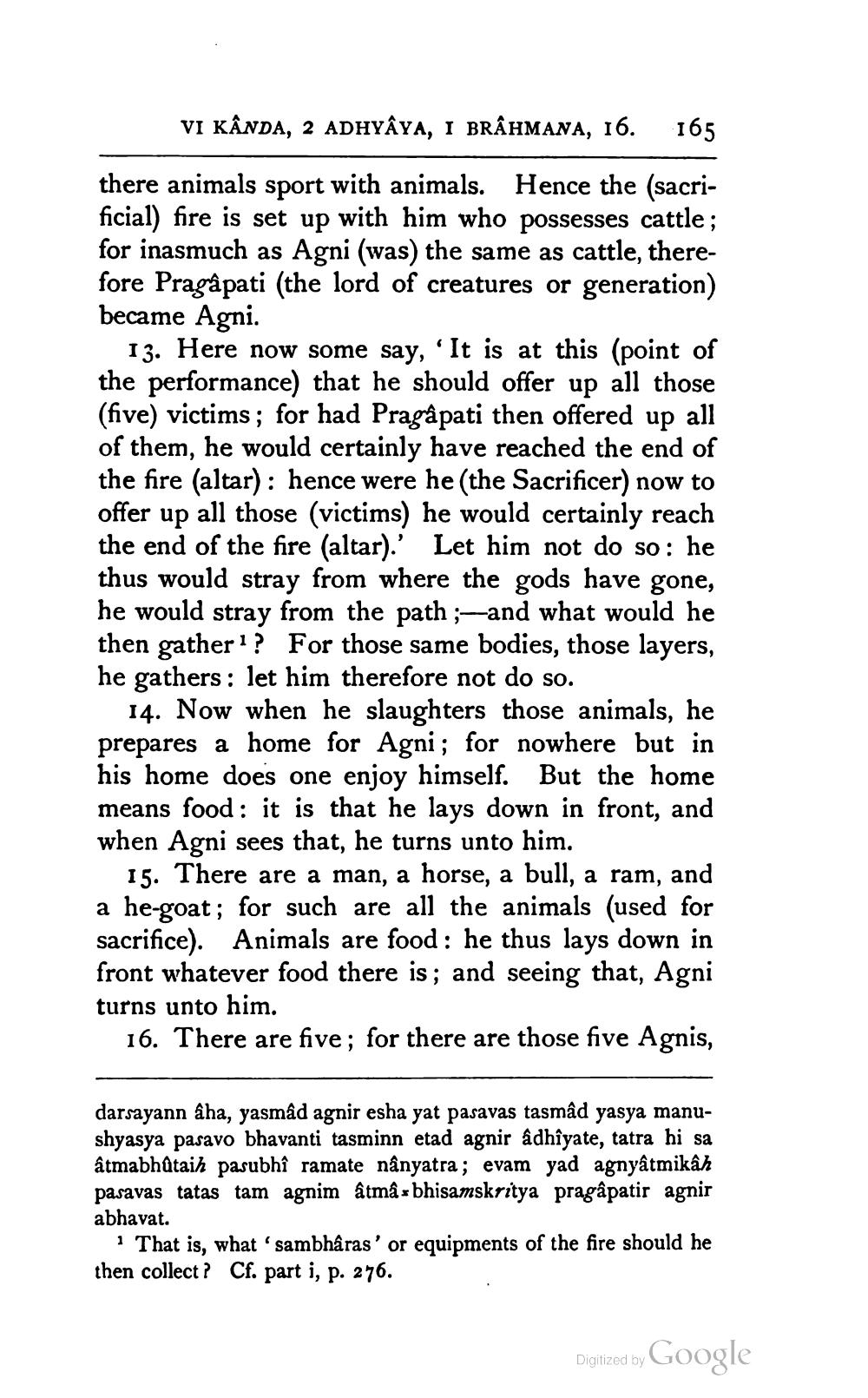________________
VI KÂNDA, 2 ADHYAYA, I BRÂHMANA, 16.
165
there animals sport with animals. Hence the (sacrificial) fire is set up with him who possesses cattle ; for inasmuch as Agni (was) the same as cattle, therefore Pragâpati (the lord of creatures or generation) became Agni.
13. Here now some say, 'It is at this (point of the performance) that he should offer up all those (five) victims; for had Pragâpati then offered up all of them, he would certainly have reached the end of the fire (altar): hence were he (the Sacrificer) now to offer up all those (victims) he would certainly reach the end of the fire (altar).' Let him not do so: he thus would stray from where the gods have gone, he would stray from the path ;-and what would he then gather"? For those same bodies, those layers, he gathers : let him therefore not do so.
14. Now when he slaughters those animals, he prepares a home for Agni; for nowhere but in his home does one enjoy himself. But the home means food: it is that he lays down in front, and when Agni sees that, he turns unto him.
15. There are a man, a horse, a bull, a ram, and a he-goat; for such are all the animals (used for sacrifice). Animals are food : he thus lays down in front whatever food there is; and seeing that, Agni turns unto him.
16. There are five; for there are those five Agnis,
darsayann âha, yasmâd agnir esha yat pasavas tasmâd yasya manushyasya pasavo bhavanti tasminn etad agnir âdhîyate, tatra hi sa âtmabhūtaih pasubhî ramate nânyatra; evam yad agnyâtmikâh pasavas tatas tam agnim atmâ bhisamskritya pragâpatir agnir abhavat.
That is, what'sambhâras' or equipments of the fire should he then collect? Cf. part i, p. 276.
Digitized by Google




